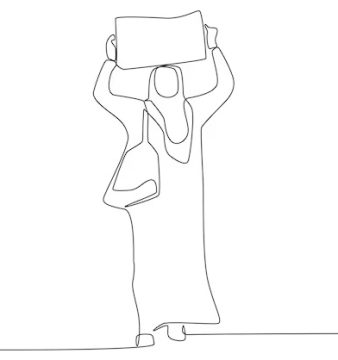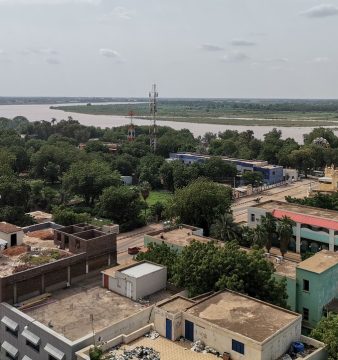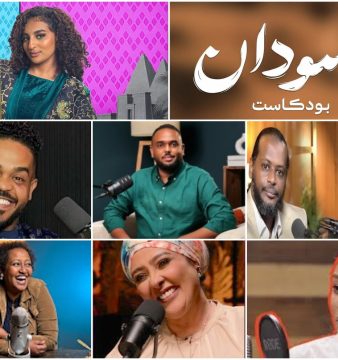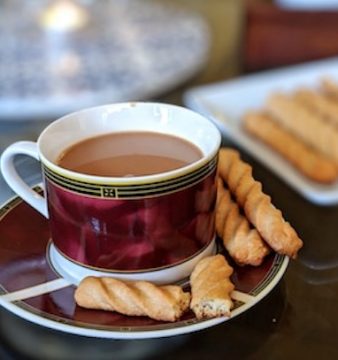The Pathos of Gasharona

If you’ve been on Sudanese Facebook lately, you’ve probably seen Gasharona, the heavily-filtered, totally silly star of a series of comedic videos that deal with situations as diverse as office life, weddings, childbirth, and even abuse.
Although the first video was only published on 31 May, the Facebook page already has nearly 70,000 followers and more than 45,600 likes, and the most popular video was viewed more than 160,700 times. That is not counting the views undoubtedly garnered by the nonofficial copies of the video shared elsewhere on social media, of course.
With so many people watching Gasharona, played by Sudanese personality Wafaa Al Gali, it is worth diving into just what makes her so popular. Part of it is undoubtedly just the filter, which renders her voice and face completely unrecognisable, adorable, and inherently funny. More important than the look, however, is the familiarity that Gasharona represents. Everyone who spends some time in a Sudanese community has met that woman who is too concerned with the food when she is allegedly on a condolence call or too eager to spread gossip between friends. In all situations, Gasharona is unfailingly rude, although she is hypocritical enough to immediately back down and dissemble when confronted.
I was first introduced to Gasharona through a video in which she, as a new bride, travels to meet her husband for the first time. When he comes to meet her at the airport, she is disappointed to find that he looks nothing like the picture she was shown beforehand. She goes on to tear apart every aspect of his physical appearance before hustling him out of the airport before her fellow travelers can see what he looks like. Her impolite evisceration of him is delightful to watch, but at the core, the video says something truthful about the dangers of relationships quickly put together on the basis of photographs and little else. I have heard of at least one bride in a similar situation who was divorced and sent home, because she did not look sufficiently like the photograph that was sent to her groom before her arrival.
Lately, I have become oddly invested in this character’s sad life. In the margins of her videos, sandwiched between bits of comedy, there is a story of domestic abuse: a controlling, possibly unfaithful husband, who on at least one occasion becomes violent with her. In one video, Gasharona’s daughter says that the previous night, Gasharona’s husband had slapped her for taking money from his pocket. The joke of the video is that the daughter reveals this interaction while the pair are out on a visit, and the mother is therefore humiliated. But though presented in a humorous manner, the central issue at stake, the physical violence enacted on a mother in front of her child, is very real and very sad.
I’m not sure how I feel about this presentation of a serious issue in a humorous light. On the one hand, perhaps such a tone trivialises the pain felt by women trapped in such situations. Mentioning abuse in an off-hand manner makes it seem normal, and focusing on the embarrassment of the discovery rather than the seriousness of the fight reflects arguably misplaced priorities. On the other hand, it is easier to discuss problems when they are presented in a light-hearted manner. Domestic abuse is a reality in every community, so perhaps acknowledging that is only part of creating truthful art. And after all, Gasharona, with all her crazy flaws, is undoubtedly the protagonist of the series, and though viewers laugh at her, they will likely sympathise with her as well.
But although each Gasharona video is only a couple of minutes long or less and designed primarily to make viewers laugh, I think it is still worth analysing the channel’s themes. I am inclined to think that it always matters what we are viewing and reading. What we take in shapes how we think. Art, no matter how brief or inherently unserious, always has a message at its core.

Zeena Mubarak is a 24-year-old Sudanese-American writer living in Germany. She is currently pursuing a Masters in English Literature and Culture at the University of Tuebingen.




